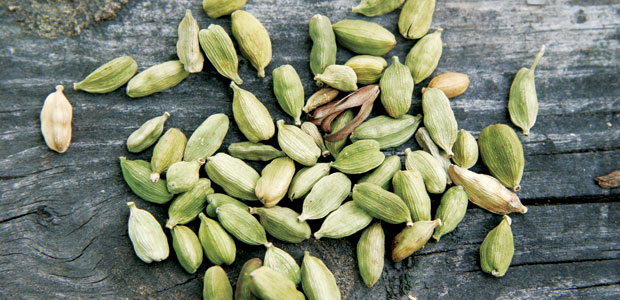Advertisement
Calming Eczema
Helping herbs from Chinese medicine

Traditional Chinese medicine (TCM) may offer real help for people with eczema. The essence of treatment is this: although the symptoms manifest on the skin, they always reflect an internal problem. Consequently, in TCM, eczema is treated from the inside out, whereas conventional treatment offers only temporary relief with topical cremes.
Eczema is a chronic, inflammatory skin condition characterized by red, itchy, dry, or weeping lesions. The incidence of allergic eczema, the most common type, is increasing in the industrialized world, with as many as 18 percent of infants affected.
This rate of occurrence suggests an association with a diet of processed, additive-laden foods and exposure to pollution and to new and multiple synthetic chemicals. In marked contrast, the rural parts of developing countries such as Iran have an incidence of only 3 percent.
Careful observation of the eczema lesions is the key to successful treatment. Although there are common patterns and affected areas, no two cases present identically. Because the skin reflects what is going on inside, different manifestations call for different treatments.
Chronic Dehydration is a Symptom
For example, the eczema lesions may be very dry and red, with the skin and especially the scalp taking on a flaky and withered appearance. Essentially, so much inflammatory heat rages that it produces a chronic, deep dehydration. This is often, but not always, the most common manifestation of childhood eczema and, in TCM, it is called blood heat.
Cooling and moistening ingredients such as the roots of Chinese foxglove (Rehmannia elata) and peony are the main ingredients in a traditional herbal treatment compounded from 10 to 16 herbs. Other herbs are added according to the location of the lesions. These herbs act as “horses” to guide the medication to the right place in the body. Additionally, herbal antihistamines such as Japanese catnip (Schizonepeta tenuifolia) are used to subdue the intolerable itch. When the body is cooled sufficiently, it will no longer generate the inappropriate inflammatory response.
Poor Digestion is a Cause
On the other hand, some eczema is not at all dry. It may present with wet, weepy lesions or fluid-filled blisters, as in the case of nummular eczema or some types of hand eczema. Such a patient is anything but dehydrated, and to apply the moistening treatment of the blood heat type would be ineffective.
The wetness of the lesions indicates that there is excess of moisture in the body, possibly the consequence of a poorly functioning digestive system. Poor digestion can produce mucus, and over time this may overflow to the skin. Alternatively, a congested liver and kidneys may not efficiently flush out waste. TCM calls this a damp heat type of eczema.
Herbs with a detoxifying, slightly drying and diuretic effect are the backbone of the prescription for damp heat eczema. They may include gentian root, a potent liver cleanser, or poria mushroom, which leaches out dampness. With open sores there is always the possibility of infection, for which the herbalist may use dandelion and common violet, two herbs that are also used in Western herbalism. Digestive dysfunction will be addressed by bitters such as coptis root or aromatics such as cardamom. In this way, the multi-herb prescription can simultaneously attack all the roots of the problem. Once digestion is functioning well and excess moisture has been removed from the body, eczema symptoms often disappear.
Herbal Preparation
In all cases of eczema, the dried roots, bark, leaves, or flowers that have been prescribed are boiled to make a concentrated extract that is then taken daily. It is generally not sufficient to take herbal pills–the inflammation is often so tenacious that it requires the stronger dosage of raw herbs. The treatment may take up to six months to complete, especially in longstanding cases.
While some herb names have been given here, self-treatment is not recommended. Sometimes, diagnosing the eczema into the hot, dry, or damp presentations is not as straightforward as it seems and therefore requires considerable experience. A TCM practitioner with a good background in herbal dermatology should be able to help.




